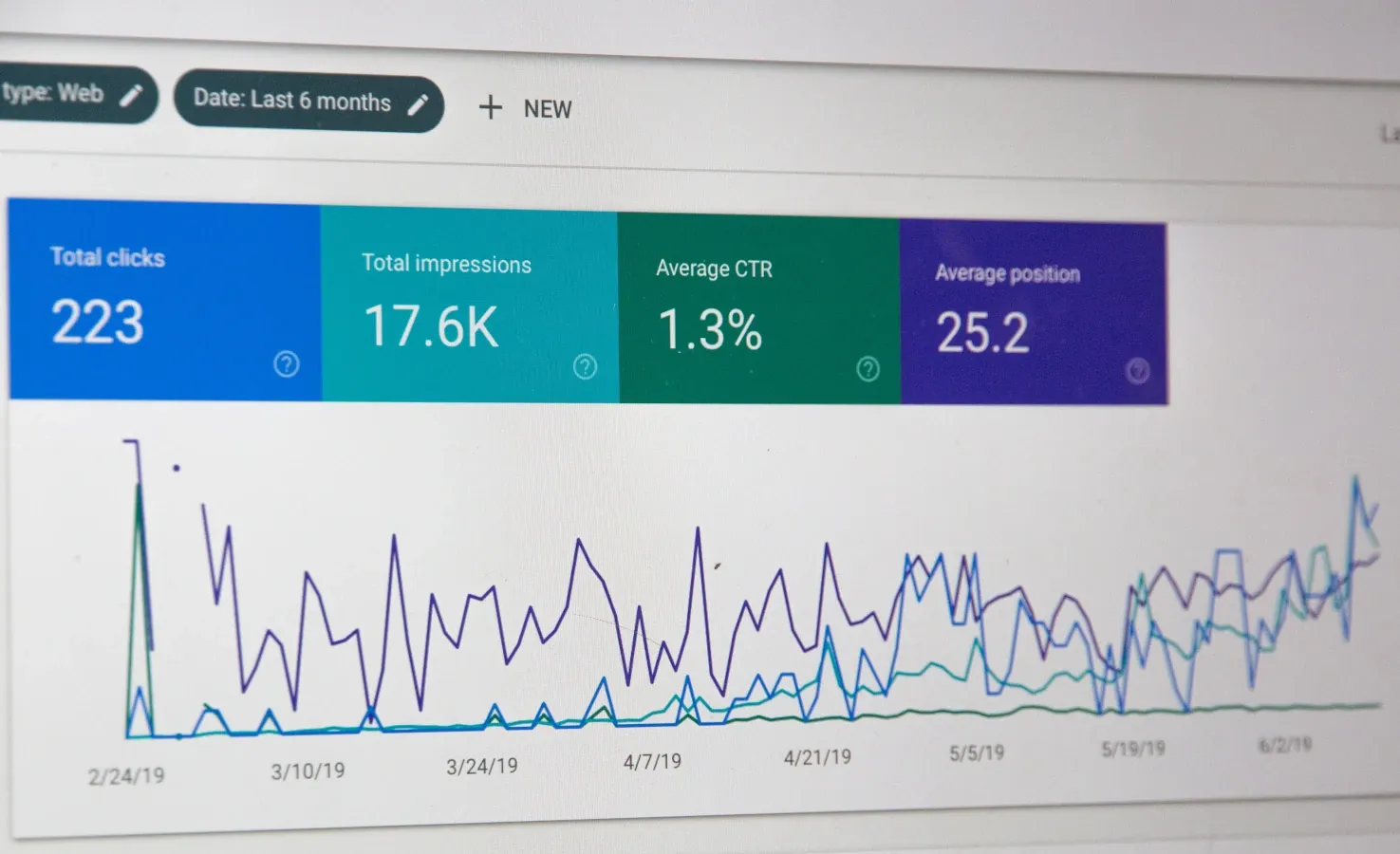
SEO Translation: Your Guide to Boosting Your Website Internationally
Today’s internationalized digital landscape requires reaching a wider audience in order to be able to achieve online success. Businesses invest in digital marketing strategies that always implement SEO optimization techniques, given that content is extremely important for an effective online presence.
While SEO, i.e., Search Engine Optimization, is the cornerstone of online visibility, SEO translation also plays a key role in ensuring content resonates with diverse international audiences.
Why SEO matters?
First things first, imagine you just had your business website finally launched and ready to be promoted. You have invested in optimizing it and making your content resonate with your target audience. Everything worked out, right?
So, after all this effort, your site still remains somewhere in the last pages of Google search results. And you can’t understand why. Here comes SEO.
SEO is a critical feature of online success. SEO matters for a multitude of reasons, and understanding its significance is crucial for every business that wants to have an effective and successful online presence.
The first and most important thing to remember is that organic search traffic generated through SEO is essentially free of charge.
While there are costs associated with SEO strategies, such as content creation or hiring professionals, the long-term benefits often outweigh the initial investments, making SEO a relatively cost-effective marketing strategy.
Furthermore, SEO helps your website and content appear prominently in search engine results. The higher your website ranks in search engines, the more people are likely to see it. This increased visibility can lead to more organic, i.e., non-paid, traffic. Also, SEO allows you to target specific keywords and phrases that are relevant to your business or content. This means the people who find your website through search engines are more likely to be interested in your product or services.
An essential factor that needs to be considered regarding SEO is that websites that rank well in search results are often perceived as more credible and trustworthy. Users tend to trust Google and other search engines to provide them with reliable and dedicated information. If your website ranks high, it benefits from this trust.
Local SEO, on the other hand, is vital for businesses with physical locations. It ensures that your business appears in local search results, helping you connect with nearby customers. If, specifically, you are a small business owner and you operate in specific areas, this step is crucial. For instance, if someone needs “product X near me,” then your business will rank higher in search results and possibly will be considered by the potential buyer.
What Is SEO Translation?
Imagine now that you are ready to explore new markets and expand your business globally or in a specific area. So far, so good. Apart from translating and properly localizing your website in order to resonate with your target market, you need to take into consideration that your website needs to achieve high rankings in the search engines of the audience of the area you are targeting. That said, you need to redesign and redefine your SEO strategy so that search engines understand your product or service and get higher rankings in the respective markets.
SEO translation is a specialized aspect of Search Engine Optimization (SEO) that involves adapting and optimizing content for different languages and regions.

It is the process of adjusting your website and content to target international markets effectively. Not only does it involve translating and adapting your content to ensure that it ranks well on search engines in various languages and locations, but also it requires thorough research, effective keyword selection, and content recreation.
Why SEO Translation Matters?
SEO translation can be both an interesting and challenging part of your Digital Marketing strategy and promotion of your business to international markets. It matters for several important reasons:
International Reach
SEO translation facilitates your content in order to reach a wider, global audience. By adapting and translating your content into multiple languages, you can easily penetrate new markets and expand your customer base beyond your native language speakers.
Therefore, SEO translation plays a vital role in achieving this by making your content available to various audiences. Different countries and regions have unique consumer preferences, behaviors, and needs. An effective SEO translation can help you enter these specific markets and reach potential customers who might otherwise be unreachable due to language barriers.
That said, when your content is accessible in multiple languages, it's more likely to engage users from different parts of the world. For e-commerce businesses, SEO translation can directly impact sales and conversions. This doesn’t seem odd since, according to Common Sense Advisory, nearly “73% of customers prefer to purchase a product or service from a site that offers information in their own language”, and “56% say that the ability to obtain information on their native language is more important than the price.”
Cultural Relevancy
Language and culture are closely intertwined, and understanding this connection is critical for creating content that truly resonates with diverse audiences. SEO translation goes beyond a simple keyword translation; it considers cultural nuances and ensures that your content resonates with different cultural groups, making it more appealing and relatable. For instance, different cultures have unique idiomatic expressions and slang.
Literal translations may not convey the intended message or could even be offensive. Also, some specific keywords that may resonate with the native speakers of your content may not make any sense to your target audience. For example, if you are a “pantalones” vendor in Spain and you want to expand to the US, then you will want to sell “pants” and not “trousers,” not because it doesn’t mean the same, but because people in the US search for pants in Google, not trousers.
Also, the tone and style of communication can differ immensely from one culture to another. SEO translation adjusts the tone of your content to fit cultural preferences, ensuring, at the same time, that the content remains engaging and relatable to the local audience, especially when it comes to product descriptions or blog posts.
Local SEO
As mentioned above, if you want your business to rank well in local search results, you need to optimize your content for local audiences. SEO translation allows you to tailor your content for specific regions, helping you show up in local search queries. Local SEO is all about relevance to a specific geographical area. It enables you to create content that resonates with the local audience in their native language, addressing their unique needs and preferences.
To perform well in local search results, you need to target location-specific keywords and phrases. By offering content in multiple languages, you create a more inclusive and user-friendly experience. Visitors are more likely to stay on your site and explore its offerings when they can access information in their preferred language; this way, the bounce rate of your site decreases, and it ranks better.
Increased Traffic
When your content is available in multiple languages, you can attract more diverse traffic. This can lead to increased website visitors and, potentially, a boost in conversions, whether that means more sales, leads, or engagement.
SEO translation enables you to connect with people from various regions, backgrounds, and languages. This broader audience not only increases the potential reach but also diversifies the demographics of your website visitors. Appearing in search results in multiple languages can significantly improve your visibility on search engines. This often results in more organic traffic, as users find your content when searching in their native language.
Competitive Advantage
Not all websites invest in SEO translation; others to avoid the cost of such a process, others because they are not familiar with the importance of SEO or because they didn’t get the right guidance.
However, investing in SEO translation gives you a competitive advantage in markets where your competitors might not have effectively localized their content. It communicates your commitment to serving diverse audiences and provides a unique selling point that can attract more customers. Competitors who haven't invested in SEO translation may not connect as effectively with diverse cultural groups. Cultural relevance builds trust, which can be a powerful differentiator in international markets.
Improved User Experience
SEO translation is not just about language; it's also about optimizing the user experience. A well-translated and culturally adapted website enhances user satisfaction, keeping visitors engaged and encouraging them to explore more of your content, as it makes your content accessible to users who may not understand your website's primary language. This inclusivity ensures that a broader range of visitors can navigate, understand your content, and resonate with it.
Think as a customer: would you keep exploring a website only driven by its images? Or, would you buy a product or service that you cannot understand what it’s about?
User-friendly navigation is an important part of a positive user experience. SEO translation may involve adapting menu items, navigation elements, and calls to action to suit the preferences of the target audience.
Data and Analytics
SEO translation provides insights into how different language-speaking audiences interact with your content. Analyzing this data can help you filter and review your strategies and better serve your global audience. Data and analytics reveal which languages and regions are generating the most traffic and engagement. This information can guide your content marketing strategies and help you target the most promising markets. Analyzing the performance of keywords in different languages can help you identify which terms are most effective in each market. This data informs your SEO translation strategy and enables you to optimize for high-performing keywords.
Compliance and Accessibility
In some regions, there may be legal requirements or accessibility standards that mandate content in specific languages. SEO translation ensures compliance and inclusivity. In some countries and regions, there are legal requirements that demand content, particularly on websites, to be available in specific languages. SEO translation is necessary to meet these legal obligations and avoid potential legal issues or penalties.
Strategies and Best Practices
SEO translation, as mentioned above, is a complex and challenging process. In order to be effective, there are some steps required to be followed in order to achieve optimal results.
The following guide provides an overview of the key strategies and best practices that need to be taken into account when translating SEO for your website and ensure the success of the overall process:
Keyword Research
Conduct thorough keyword research in your target language. Consider local dialects and regional variations, as keyword preferences can differ widely. Always keep in mind that what makes sense in your website’s native language may not be effective in your target market’s language.
Quality Content Translation
Translating content isn't enough; it must also convey the same meaning, tone, and value in the target language. Professional human translators specializing in SEO translation are crucial in this point because they will know how to avoid crucial pitfalls in translating your content.
Meta Tags and Descriptions
Translate your meta tags and descriptions, ensuring they accurately represent the content of your pages while incorporating relevant keywords. They play an important role in your website ranking results, and they are often neglected in the translation process.

Local Link Building
Acquire backlinks from local, authoritative websites to enhance your credibility and search engine ranking in the target market. This step requires a lot of research and strategic thinking and should be performed thoroughly.
Mobile Optimization
Ensure your website is mobile-friendly, as many international users access websites via mobile devices. Also, keep in mind your target audience’s habits regarding mobile use and how they use specific keywords.
Hreflang Tags
Implement hreflang tags to inform search engines which language and regional content to display to users so that your ranking does not get blocked.
SEO Translation: Finding the Right Partner
Choosing the right partner is another crucial step for successful SEO translation. When searching for an SEO translation agency or "SEO translation near me," you should consider the following:
Expertise
Look for agencies with experience in SEO and Translation. SEO translation usually requires more than one people who are working together to get the optimal results. An agency with experience in SEO translation and a deep understanding of cultural adaptation is essential. They should be able to adjust content to resonate with local audiences, ensuring cultural relevance. They should also be able to optimize content not only for language but also for user experience, mobile-friendliness, and search engine performance in multiple languages. An experienced agency should have a solid understanding of international SEO strategies, including backlink building, local SEO, and search engine trends in different regions.
Translators
Ensure that the SEO translation agency employs professional, native-speaking translators who specialize in SEO translation and content localization. Native translators are well aware of their culture and their language, which allows them to understand what appeals to the target market and adapt content accordingly. By using specialized translators, you enhance the credibility of your translated content, especially when conveying complex or sensitive information. While specialized translators may have higher rates, their efficiency and quality often result in cost savings in the long run due to reduced revisions and corrections.
Technological Capabilities
Another critical step while choosing an SEO translation agency is to confirm their use of SEO tools and translation management systems.
SEO tools help identify relevant keywords and phrases in different languages.
Translation management systems allow for efficient on-page SEO optimization. This includes the incorporation of keywords, meta tags, alt text for images, and other SEO elements into the translated content.
Also, the use of technology can significantly increase the efficiency of the translation and localization process, reducing the time required for project completion.
As the digital world continues to dominate, reaching global audiences is no longer a luxury —it's a necessity. SEO translation, along with proper localization, is the bridge that connects your content to the world, allowing your message to travel globally and connect your business to international markets.
Need a Translation?
Tell us a bit about your project & we’ll follow up shortly!